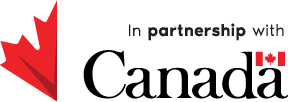Curbing Teenage Pregnancies Through Education in the Philippines
Seeking Women's Reproductive Autonomy
As the monsoon rain pounds down on the paddy fields outside, the high-pitched cry of a two-month-old baby fills a small hut home to three families. For Arlene Gambas, 19, the sound recalls the birth of her first of two children.
Though a child wasn't something she had planned for or wanted, due to a traditionally male-dominated culture, she didn't have a choice. "[The father] wanted it," she says. "I didn't because I was in grade 11."
Through Oxfam Canada's Sexual Health and Empowerment (SHE) project, we hear many stories like Arlene's. While she's now using contraception provided by a local facility supported by SHE, other Filipino women and girls don't have the same control over their bodies.
The 2017 Philippines National Demographic and Health Survey reported that less than half (47 per cent) of married women aged 15 to 49 have control over their healthcare decisions. The survey also revealed there are 47 births per 1,000 women aged 15 to 19 years old each year. It's one of Southeast Asia's highest teenage birth rates and exceeds the global average of 44.
Restrictive policies such as anti-abortion laws and strict control over teenage access to contraception, harmful social norms like child and forced marriage and violence against women and girls, and a lack of information all contribute to the issue of teenage pregnancies.
To empower women and girls to make choices about their own sexual and reproductive health, the SHE project supports peer education programs led by local non-government organizations in six disadvantaged and conflict-affected regions of the Philippines. Youth leaders are trained to provide and support access to modern contraceptive methods and information about sexual and reproductive health rights (SRHR).
The Philippines
A total of 345,544 people across the country will be positively impacted by SHE, with 67 per cent being women and girls.
Promoting SRHR and Reducing Teenage Pregnancy
Judy Mae Alambag is part of one such program. In 2020, she joined Adolescent and Youth Reproductive Health Peer Education, a training session for trainers. She hoped to gain knowledge to share with her colleagues and friends.
She has done that and more.
As a peer educator, Judy has been serving her community in the Caraga region in the southern Philippines, raising awareness of SRHR by speaking with youth leaders engaged by Sibog Katawhan Alang Sa Paglambo (SIKAP), a SHE project partner.
The work couldn't be more timely.
In Caraga, the majority of the young population will enter childbearing age in the next decade. Unmet demand for sexual and reproductive health information and services for young people is expected to be significant and, if unaddressed, may lead to more teenage pregnancies.
The peer educator program is one way to decrease teenage pregnancy by giving young people accurate reproductive health information and connecting them to youth-friendly health services.
"We choose peer education since, as we all know, youth confide and get a great deal of information from their peers on the issues that are sensitive, like sexuality and reproductive health concerns," says Christine Ampon, SIKAP executive director. "It has been evident in our society that Filipino adolescents and parents alike are not open to talking about these issues."
The number of peer educators trained through the SHE project on SRHR and preventing gender-based violence. These dedicated individuals share their knowledge with their communities and organize powerful awareness and education activities.
The number of people reached by SHE-trained peer educators who provide safe spaces for people to ask questions and talk about sexual and reproductive health without fear of judgment.
Fostering Family Planning
With support from the SHE project, SIKAP facilitated Usapang Serye, a talk series to promote better access to health services. It addresses negative beliefs women and their partners may have about contraceptives and support the health of pregnant women and their families.
Different from traditional lectures, Usapang Serye facilitates informal group discussions that:
- Promote and facilitate a variety of family planning choices and the use of birth spacing methods.
- Encourage male participation in family planning and maternal and child health.
- Teach pregnant women basic behaviours to ensure healthy pregnancy, safe delivery, and family planning.
The number of healthcare providers trained by Jhpiego, a SHE project partner, to offer higher quality and more accessible sexual and reproductive health services for young people.
The number of rural health facilities supported by Jhpiego to become certified youth-friendly health facilities.
Creating Lasting Change
As of 2022, the SHE project has trained a total of 12,863 peer educators, who have reached 53,067 people. For instance, in Caraga, our partner, SIKAP, has engaged 1,939 youth and adult peer educators, reaching 14,668 people.
Through our solid partnerships with local groups and organizations, the SHE project is fostering community participation, contributing to the empowerment and mobilization of women, and working to protect the SRHR of Filipina women and girls—now and for years to come.
About the Project
The Sexual Health and Empowerment (SHE) project strengthens knowledge about sexual and reproductive health rights so that women and girls can take control of their bodies and lives. The project supports providers and practitioners in delivering comprehensive, youth-friendly sexual and reproductive health services and information. SHE also boosts the capacity of women's rights organizations to advance sexual and reproductive health and rights and prevent gender-based violence.
This project is undertaken with the financial support of the Government of Canada, provided through Global Affairs Canada and the generous Canadian public.

Read More Stories Like This
The change doesn’t stop here. Explore other stories from the frontlines of our work on sexual and reproductive health and rights.